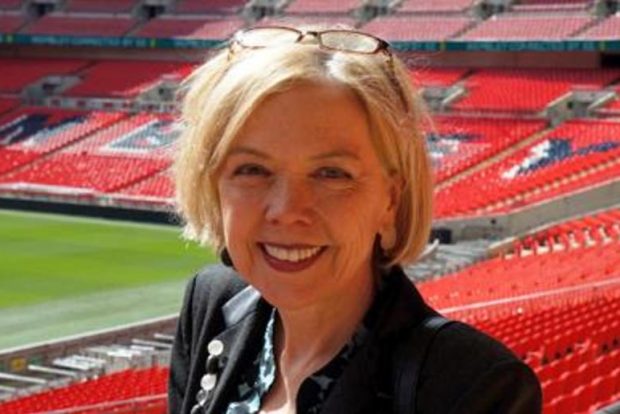
The Centenary of Women’s Suffrage is a great opportunity to reflect on and share the many inspirational stories of women in politics and public life. Looking at some of our own cultural, sporting and now digital female pioneers shows powerfully how equality benefits us all.
The suffrage campaigners fought hard for the rights of women to vote, to be heard and to make a difference. In the intervening years, women from across our sectors have taken up that challenge and continue to push for progress. These women and the many talented women I work with in my own department are all part of that ‘votes for all’ legacy.
Yet as with this year’s centenary milestone - where only some women got the vote - we know there is more to be done to create a truly equal society. The number of working women in tech is significantly lower than other UK sectors - just 17%. More than half of civil service is female but despite good progress, just 25% of permanent secretaries are women.
So I am proud to lead a Department where female representation, at all grades, is one of best in Whitehall (better than 50:50 from EO to SCS). A Department that is driving up the representation of women on sports governing boards and campaigning on digital skills. I am also proud that we introduced equal marriage and that we encourage our people to bring their whole self to work. After supporting its foundation, we were also the first government department to sign the Tech Talent Charter (which you can read about here)
I hope you are similarly inspired by some of our digital, cultural and sporting pioneers.
Lilian Baylis (1875-1937)
Lilian Baylis laid the foundation for the National Theatre and the English National Opera.
Lilian - known as the grandmother of our national theatre - took over the running of the Old Vic Theatre in London in 1912, transforming its fortunes and is credited with putting Shakespeare back at the heart of the English repertoire.
She was the first person in history to stage every Shakespeare play and during the First World War she insisted the show went on saying "What is an air raid when my curtain’s up!" Many stars went through her doors.
She also raised funds to renovate Sadler’s Wells theatre - turning it into a home for her ballet and opera companies, which would go on to be the English National Opera and the Royal Ballet.
Rachael Heyhoe Flint (1939-2017)
Rachael Heyhoe Flint was an icon in women’s cricket - a trailblazer who fought sexism and indifference to raise the profile of her sport.
She captained the England women’s team for twelve years from 1966 and was instrumental in founding the first ever women’s cricket World Cup - two years before the men’s event. She secured sponsorship and media coverage for it, leading to a pioneering career in sports broadcasting in the 1970s.
In 2004 Rachael became the first woman to sit on the Marylebone Cricket Club committee - she had first applied in 1991. She was also among the first women to sit on the England and Wales Cricket board and in 2010, became the first woman to be inducted into the International Cricket Council’s Hall of Fame.
Carrie Anne Philbin
Computing and ICT teacher, leading the educational mission of the Raspberry Pi Foundation.
Carrie Anne Philbin is a teacher, author and YouTuber. She leads on education for the Raspberry Pi Foundation - a UK-based charity sharing the power of digital and programming - and her book, Adventures in Raspberry Pi, is aimed at 11 -15 year olds wanting to get started.
Her YouTube series, Geek Gurl Diaries is aimed at teenage girls, a collection of video logs about using and making technology, alongside interviews with inspirational women in the fields of computing, science, technology and engineering. Through these initiatives and as Chair of the Computing At Schools initiative, Carrie Anne is helping to get more girls into tech.
Subscribe to this blog for more stories from inspirational women. You can also follow Suffrage Centenary on Twitter.
Recent Comments